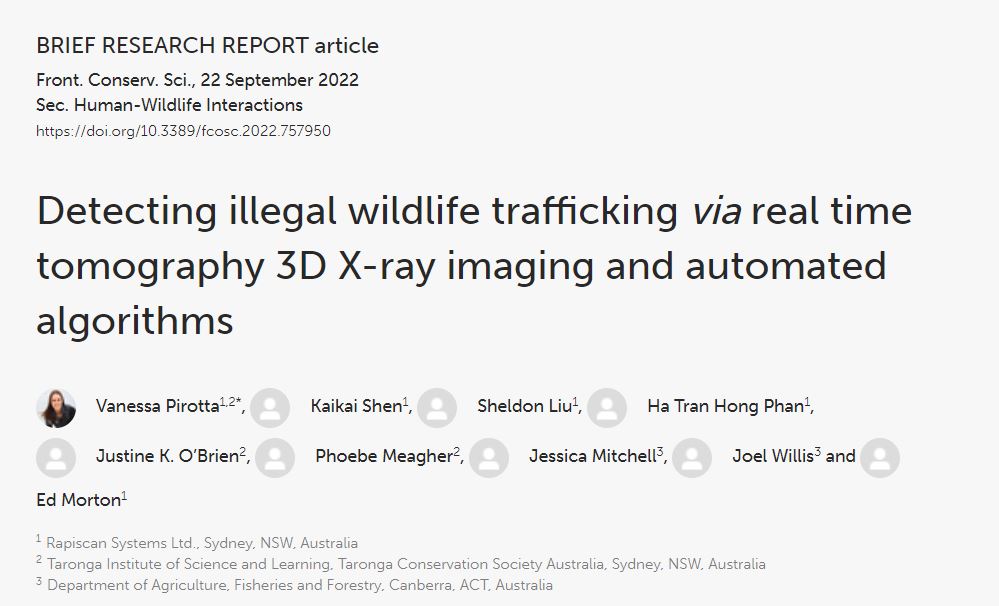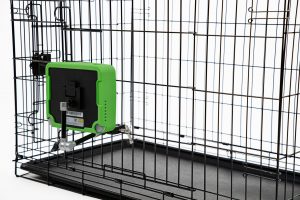Vanessa Pirotta1,2*,  Kaikai Shen1, Sheldon Liu1,
Kaikai Shen1, Sheldon Liu1,  Ha Tran Hong Phan1, Justine K. O’Brien2,
Ha Tran Hong Phan1, Justine K. O’Brien2,  Phoebe Meagher2,
Phoebe Meagher2,  Jessica Mitchell3,
Jessica Mitchell3,  Joel Willis3 and
Joel Willis3 and  Ed Morton1
Ed Morton1
- 1Rapiscan Systems Ltd., Sydney, NSW, Australia
- 2Taronga Institute of Science and Learning, Taronga Conservation Society Australia, Sydney, NSW, Australia
- 3Department of Agriculture, Fisheries and Forestry, Canberra, ACT, Australia
Wildlife trafficking is a global problem involving the deliberate and illegal transport of wildlife across international borders. Animals are either removed directly from their natural environment or bred specifically to fuel demand driven by activities such as the illegal pet trade or for purported medicinal reasons.
In Australia, wildlife trafficking poses a serious environmental and biosecurity risk through the removal of native species and the introduction of exotic invasive wildlife. This has the potential to impact the natural ecosystem and Australia’s multibillion-dollar agricultural industry. To help detect and restrict this activity, innovative technologies such as 3D X-ray CT technology using Real Time Tomography has been trialed to create wildlife detection algorithms for deployment across Australian mail/traveller luggage pathways.
Known species of trafficked Australian wildlife and additional model species of exotics were scanned to create an image reference library for algorithm detection. A total of 294 scans from 13 species of lizards, birds and fish were used to develop initial wildlife algorithms with a detection rate of 82% with a false alarm rate at 1.6%. In combination with human and biosecurity dog detection, this innovative technology is a promising complementary platform for wildlife detection at Australian international borders, with potential worldwide applications.
Source : https://www.frontiersin.org/articles/10.3389/fcosc.2022.757950/full






